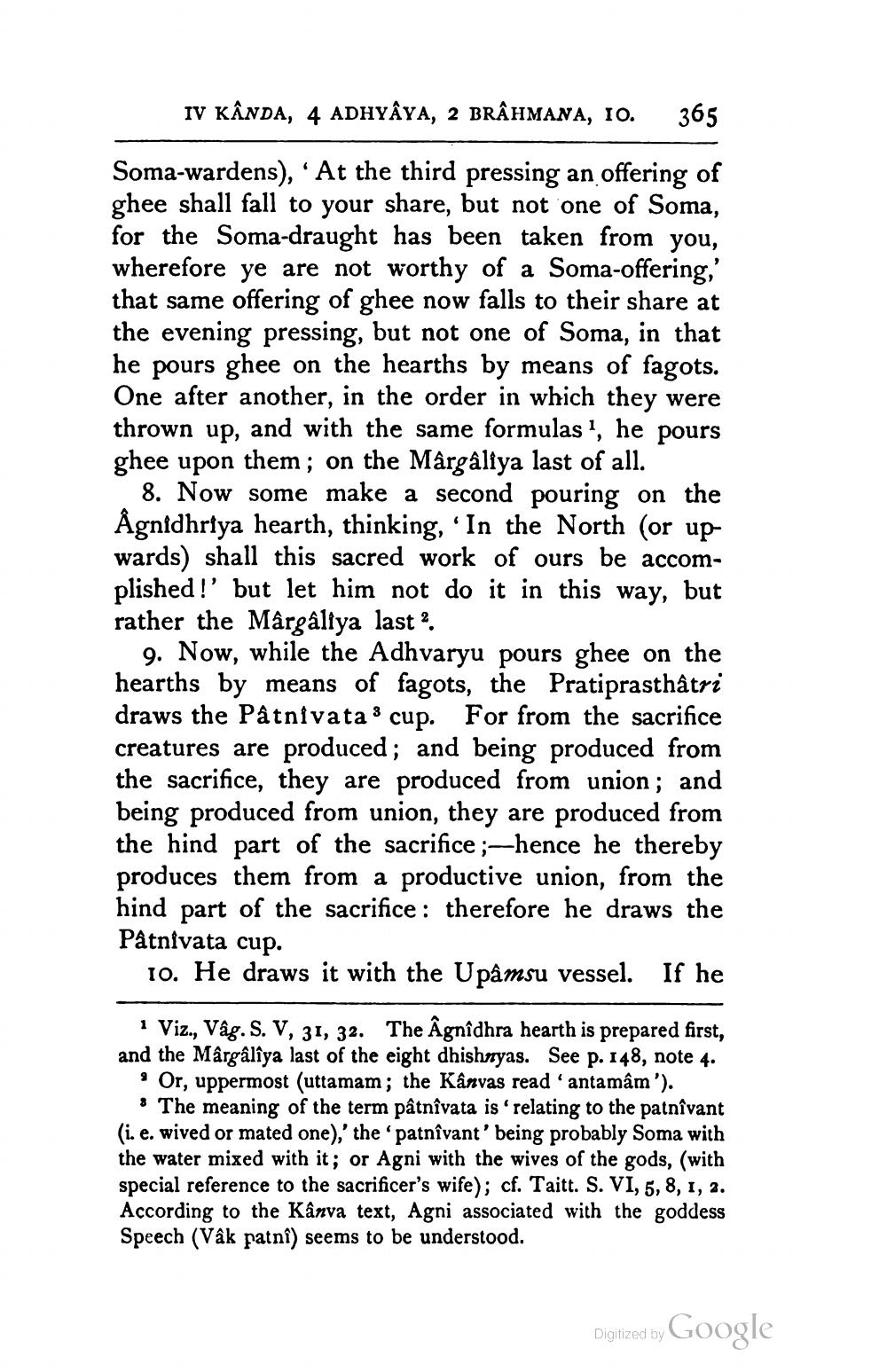________________
IV KÂNDA, 4 ADHYÂYA, 2 BRÂumana, 10.
365
Soma-wardens), * At the third pressing an offering of ghee shall fall to your share, but not one of Soma, for the Soma-draught has been taken from you, wherefore ye are not worthy of a Soma-offering,' that same offering of ghee now falls to their share at the evening pressing, but not one of Soma, in that he pours ghee on the hearths by means of fagots. One after another, in the order in which they were thrown up, and with the same formulas?, he pours ghee upon them; on the Mârgâliya last of all.
8. Now some make a second pouring on the Ågnidhriya hearth, thinking, 'In the North (or upwards) shall this sacred work of ours be accomplished !' but let him not do it in this way, but rather the Mârgâliya last 2.
9. Now, while the Adhvaryu pours ghee on the hearths by means of fagots, the Pratiprasthầtri draws the Pâtnivata : cup. For from the sacrifice creatures are produced; and being produced from the sacrifice, they are produced from union; and being produced from union, they are produced from the hind part of the sacrifice;-hence he thereby produces them from a productive union, from the hind part of the sacrifice : therefore he draws the Pátnivata cup.
10. He draws it with the Upâmsu vessel. If he
· Viz., Vâg. S. V, 31, 32. The Âgnîdhra hearth is prepared first, and the Mârgâlîya last of the eight dhishnyas. See p. 148, note 4.
• Or, uppermost (uttamam; the Kanvas read' antamâm').
• The meaning of the term pâtnîvata is relating to the patnîvant (i. e. wived or mated one),' the 'patnîvant' being probably Soma with the water mixed with it; or Agni with the wives of the gods, (with special reference to the sacrificer's wife); cf. Taitt. S. VI, 5, 8, 1, 2. According to the Kanva text, Agni associated with the goddess Speech (Vâk patni) seems to be understood.
Digitized by Google




